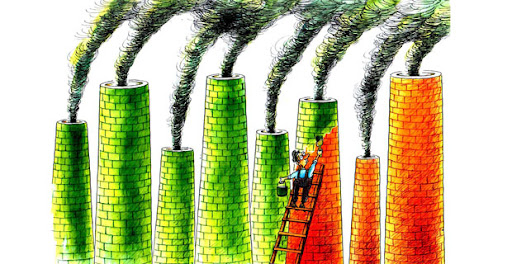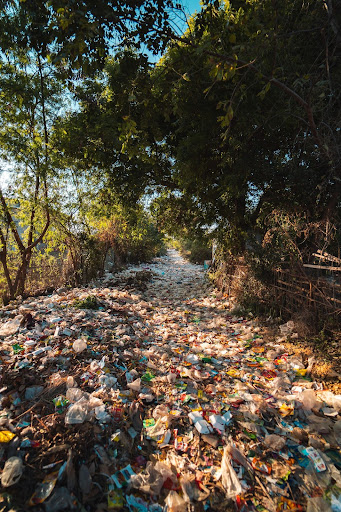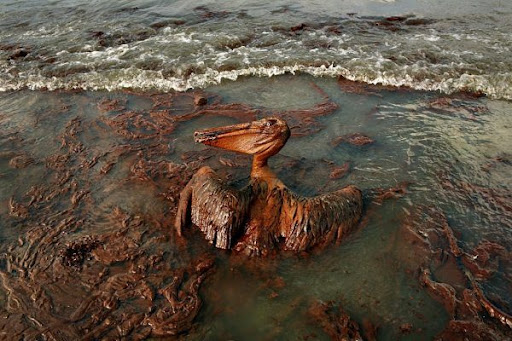Greenwashing. What is Greenwashing and how does it affect me?

Greenwashing is when a company or organisation tries to appear to be more environmentally friendly than it really is. They might exaggerate the positive impacts of their product/service, or even say it is beneficial to the planet when it is harmful! Greenwashing includes brands claiming to have eco-friendly values while carrying on with their usual destructive practices.
How do companies greenwash?
Some classic methods of greenwashing are listed below:
- Using green colours and pictures of nature animals, and green packaging are a deceptive way of making something look eco-friendly when it might not be!
- Over-simplifying problems or leaving information outIt seems great that your plastic water bottle is 100% recyclable, but only 9% of plastic is ever recycled globally. (1) Even if your bottle is lucky enough to be in that 9%, it is not going to be turned into new bottles! Plastic is ‘downcycled’ because the quality of the material gets reduced each time it is recycled
- Carbon offsetting by tree plantingPlanting trees – if done in the right way – is brilliant for the planet. But using it as a ‘Get Out of Jail’ card to keep doing business as usual and pass the responsibility onto someone else doesn’t get to the root of the problem. See this about ‘Phantom Forests’ for more detail:
https://www.bbc.co.uk/news/science-environment-61300708 - Using words like ‘Eco’ and ‘All Natural’ on packagingUnlike well-known brands such as Fairtrade, there is no agreed meaning of these words, and anyone can use them.
- Only focusing on issues that have already been solved.Companies are eager to tell you how many plastic straws they have saved, using these kinds of statistics as a distraction from the bigger problems at hand

Why do companies greenwash?
Greenwashing can be done by accident or intentionally. Sustainability is a very complex issue that is about more than just your carbon footprint. It also involves materials, pollution, water usage, biodiversity loss, ethics, and more! The global supply chain is highly interconnected, and it is hard to trace where products have come from, especially for consumers. There is a lack of information surrounding carbon emissions for both the public and firms. Words like 'ethical' have no universal definition and are ambiguous. This means it can be easy to make mistakes and genuinely believe your product/service is less environmentally damaging than it is.
Unfortunately, there is also a darker side to greenwashing that involves intentional lying to mislead and manipulate the public. Some organisations spend huge amounts of money on marketing to spread false information and purposely distract from the harm they are causing. For example, oil giants Shell and BP are well known for hiding their destructive practices behind fancy adverts focusing on renewable energy.
Companies greenwash because they want to win consumers’ approval, whilst protecting their profits as much as possible. They also might use it to appeal to new markets of people who wouldn’t usually buy their product/service. The sad truth is that intentional greenwashing is purely driven by a desire to make money by whatever means – even if that includes exploiting people and the planet.

Where does the term greenwashing come from?
It has been around for longer than you might think! In the 1980s an environmental lawyer, Jay Westerveld, criticised hotels that pretended to be eco-friendly by asking clients to keep their towels for more than one day if they didn’t need to be washed. (2) The amount of water and energy saved from this, while beneficial, is dwarfed by all the other environmental impacts of the hotel, and therefore is laughable. He coined the term ‘greenwashing’ to describe this superficial attempt to save the planet and falsely reassure the public at the same time.
Examples of greenwashing
Did you know the concept of a carbon footprint is a classic example of greenwashing? It was devised in a marketing strategy by oil company BP in 2005 to shift responsibility from their shoulders onto individuals. While individual people do contribute to the climate crisis through their carbon footprints, this shouldn’t be a smokescreen from the fact that oil companies are literally fueling the climate crisis – and profiting from it! In 2019, ClientEarth filed a complaint against BP for focusing their adverts solely on low-carbon initiatives, when 96% of their annual spend is on fossil fuels. (3)
Packaging that is biodegradable, recyclable or made from bioplastic has sky-rocketed in popularity, with companies eager to put these words on their branding. This skirts past the real issue of what happens to the packaging after it has been used, though. Using a recyclable material is pointless if it still ends up in landfill at the end of its life.
What impact is greenwashing having on us?
Greenwashing is an unethical form of marketing. Fossil fuel companies provide convenient, environmentally damaging products, while sitting on enough money and power to make real changes. It is hypocritical to do this and then make individuals feel guilty about the negative consequences. Greenwashing not only damages the planet, but also society and even our mental health too. Spreading misinformation about sustainability confuses people, and realising we have been using something that isn’t as eco-friendly as we thought can make us feel guilty and angry that we have been lied to. This feeds into ‘climate anxiety’, which is when people feel overwhelmed, worried, or hopeless about climate change. At best, greenwashing just lulls us into a false sense of security that global warming is already being solved.
So what can I do about greenwashing?
Greenwashing is a problem that is becoming increasingly common as the importance of climate change is recognised. To avoid it, be aware of vague promises, green branding, and adverts that seem too good to be true, or misaligned with those companies’ actions.
In order to stop greenwashing, governments and organisations need to work together to develop a system and regulations that can’t be manipulated so easily. But not everything is in their hands - their work is amplified when it is supported by the general public. As an individual, the best way of not falling for greenwashing is to inform yourself and become more knowledgeable about environmental issues. When you spot greenwashing, make your opinion heard by calling the company out for it!
Bear in mind that it would be almost impossible to research everything you buy and be 100% sure it is good for the environment. It can be an overwhelming task to try and understand the impact of a product or service, especially when there is simply no information available. There are some apps/websites that help by doing the in-depth research for you and presenting the results.
- Good On You - an app developed in partnership with well-known feminist and environmental advocate Emma Watson. It scores clothes brands in terms of their ethics, sustainability, and animal cruelty, helping you to make a more informed choice about what you buy https://goodonyou.eco/
- Greenpeace - an organisation that is famous for calling out companies who greenwash, and they also provide lots of informative articles about the climate crisis and biodiversity loss https://www.greenpeace.org.uk/challenges/
Back to Top